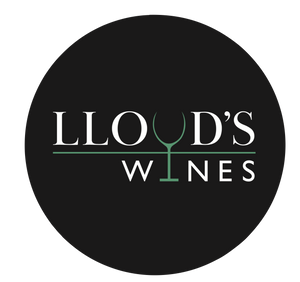What Factors Affect The Price Point Of A Bottle Of Wine?
Jun 25, 2024
One of the most commonly asked questions when it comes to choosing a bottle of wine is: “Why does this bottle cost (what it does)?”. It’s possible to pick up a supermarket brand wine for around £5-£10, but some wine merchants will charge £100+ for a bottle of the finest white or red. So what factors determine the price tag of wine?
Region and terroir
The terroir of a wine means the qualities and characteristics that are specific to the region the grapes are grown, and this can play a significant role in pricing. Certain regions that you are probably familiar with, such as Bordeaux in France and Tuscany in Italy have long-established reputations for quality wines.
This is due to a combination of geographical factors such as terrain, soil type and climate, and can also involve the way the grapes are harvested and the process of the wine making itself.
Grape varieties
Premium variety grapes that are valued for their superior flavours and complexity tend to command higher prices because there is more demand for them. These grapes need specific conditions to grow, and skilled vineyard managers who know when the right time to harvest them is.
The stage of ripeness that a grape is harvested can be crucial to the overall flavour and quality of the wine, and it can take years of experience and knowledge of the local climate to understand this. This is why some vineyards are more highly regarded than others, and their wines have a higher market value.
The method that the grapes are harvested can have an impact too, as hand picked grapes are selected to be of the highest quality, whereas machine harvested grapes offer less opportunity for quality-control. Even factors such as how the vines are pruned, and the yield of each vine can influence the grape quality and therefore the price of the wine.
Winemaking process
The winemaking process has a strong influence on the price of the wine. Wines that are made with traditional methods, such as Champagne, will almost always cost more than wines produced more quickly in tanks, such as Prosecco. Wine that is aged in oak barrels or bottles can also cost more because of the extra time and expense involved.
Ageing potential
Some wines, particularly reds, have the potential to improve with age if they are stored in the correct conditions. This can lead to a more luxuriant flavour and texture, adding value to the wine.
In the end, a bottle of wine is only worth what people are willing to pay for it, and we all have our different tastes and preferences. Wine connoisseurs will look for a pleasing complexity and intensity of flavours and aromas, a satisfying harmony between all of these elements, and a distinctive aftertaste.
However, ultimately we will all have our own reasons for enjoying a particular bottle of wine, and there is no need to be an expert!


